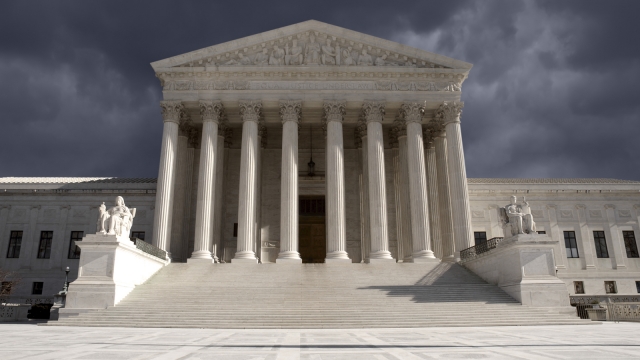BREAKING: U.S. Supreme Court Remands and Vacates Gavin Grimm Case

Today, HRC responded to the news that the Supreme Court of the United States will not hear the case of G.G. v. Gloucester County School Board this term. Gavin Grimm, a transgender boy, filed suit against the school board alleging it violated Title IX of the Education Amendments of 1972 by denying him use of the boy’s restroom.
“The Supreme Court of the United States sent this case back to the Fourth Circuit as a direct result of the Trump Administration rescinding school guidance protecting transgender students. Now, thousands of transgender students across the country will have to wait even longer for a final decision from our nation’s highest court affirming their basic rights,” said HRC Legal Director Sarah Warbelow. “To be clear, transgender students are covered by Title IX and are entitled to the same rights and protections as every other student. But while this plays out in our courts, we are deeply concerned about the consequences this could have for transgender students, who may not be aware of their rights or be subject to increased discrimination by others who feel emboldened by the Trump Administration’s recent actions. Now more than ever it is crucial for all of us to affirm to transgender students that they are equal, they are valued, and there are millions of people across our country who will have their backs, no matter what.”
Today, the Supreme Court sent the Grimm case back to the Fourth Circuit Court of Appeals following the Trump Administration’s decision to rescind protective school guidance for transgender students. Because the Fourth Circuit’s original ruling was heavily based on the Obama Administration’s guidance, the Supreme Court has asked the lower court to revisit the case and rule on the underlying statutory question regarding the scope of Title IX. Title IX prohibits discrimination against transgender students including with respect to restroom access regardless of the guidance.
In June, a federal court ordered the Gloucester County School Board to allow Grimm full access to the restroom that corresponds with his gender identity, consistent with a ruling from the Fourth Circuit Court of Appeals. In August, the Supreme Court of the United States halted the lower court’s order, allowing the school board’s discriminatory policy to remain in place while the court awaited an application by the school board to have its full appeal heard.
48 hours after Jeff Sessions was confirmed as Attorney General and a day after being sworn in, the Department of Justice moved to eliminate the Obama Administration’s challenge to a nationwide injunction against enforcement of the guidance, allowing the nationwide hold to continue. Despite this action, transgender students facing discrimination can still file suit under Title IX of the Education Amendments of 1972.
Allowing transgender people to access facilities consistent with their gender identity — something compelled for years by laws in 18 states as well as embraced by hundreds of cities and school districts around the country — has not resulted in problems. On the other hand, forcing transgender students to use sex-segregated facilities contrary to their identity can impose real harm on transgender students, further compounding the discrimination and marginalization they already face.
A recent study correlated the high suicide rates of transgender students with discriminatory bathroom restrictions, and, according to the Youth Suicide Prevention Program, more than 50 percent of transgender youth will have had at least one suicide attempt by their 20th birthday.
You Might Like
